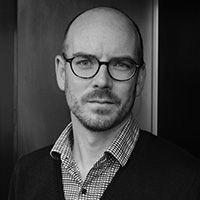
Citation de Sodapop_Curtis
The international committees were dominated by former political prisoners, who would shape the memory of the camps for years to come ; most stood on the left of the political spectrum, leading to enthusiastic celebrations of the Day of Labor (May 1) inside the liberated camps. By contrast, social outsiders had no voice at all, and Jews were marginalized, too. Neither Allied commanders nor inmate leaders acknowledged them as a distinct group, at least not initially. In Dachau and Buchenwald, Jewish survivors had to fight for a place on the international committees. “We demand that Jewish affairs are dealt with by Jewish representatives,” a young Pole wrote in his Buchenwald diary on April 16, 1945.
This was not the only clash between inmates under the frayed banner of international solidarity. Unresolved political conflicts poisoned the atmosphere, and would continue to do so in Cold War Europe, with entrenched battles between survivor groups over commemoration. Even more pronounced were the tensions between the national groups, yet another legacy of the KL. Nationality became the main marker of the post-liberation inmate community, with separate barracks, organizations, and newspapers ; during the May 1 celebration, most former prisoners marched under their own country’s flag. Conflicts soon flared up over old resentments and new problems, though they rarely turned as violent as in Ebensee, where Soviet and Polish survivors apparently shot at each other.
Just as there had been prisoner hierarchies in the Nazi period, there were survivor hierarchies after the war. From the start, social outsiders — including homosexuals and Gypsies — were pushed to the bottom, by prevailing prejudices and also by former political prisoners determined to dissociate themselves from more unpopular victim groups. As early as 1946, some “asocial” and “criminal” survivors joined together to protest against their marginalization in a short-lived journal of their own. Suffering in the camps, they announced, should not be measured by the color of a survivor’s triangle. But they were not heard. Social outsiders were widely excluded from compensation and commemoration, and it took decades before they were recognized as KL victims.
This was not the only clash between inmates under the frayed banner of international solidarity. Unresolved political conflicts poisoned the atmosphere, and would continue to do so in Cold War Europe, with entrenched battles between survivor groups over commemoration. Even more pronounced were the tensions between the national groups, yet another legacy of the KL. Nationality became the main marker of the post-liberation inmate community, with separate barracks, organizations, and newspapers ; during the May 1 celebration, most former prisoners marched under their own country’s flag. Conflicts soon flared up over old resentments and new problems, though they rarely turned as violent as in Ebensee, where Soviet and Polish survivors apparently shot at each other.
Just as there had been prisoner hierarchies in the Nazi period, there were survivor hierarchies after the war. From the start, social outsiders — including homosexuals and Gypsies — were pushed to the bottom, by prevailing prejudices and also by former political prisoners determined to dissociate themselves from more unpopular victim groups. As early as 1946, some “asocial” and “criminal” survivors joined together to protest against their marginalization in a short-lived journal of their own. Suffering in the camps, they announced, should not be measured by the color of a survivor’s triangle. But they were not heard. Social outsiders were widely excluded from compensation and commemoration, and it took decades before they were recognized as KL victims.


